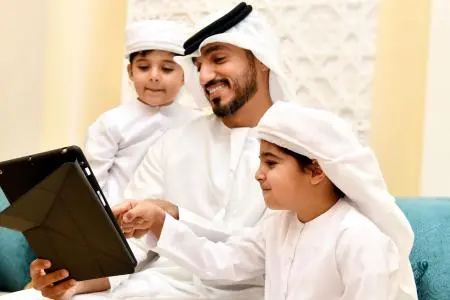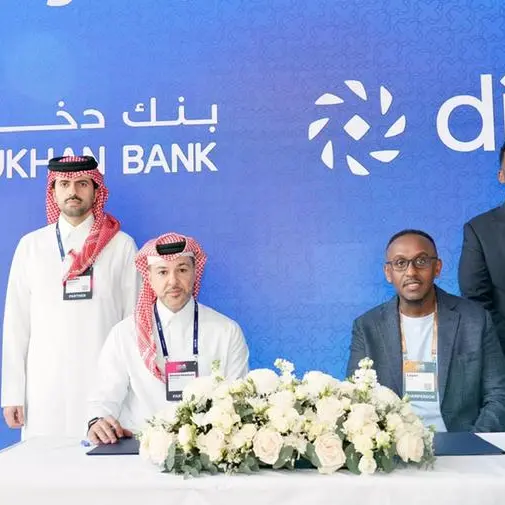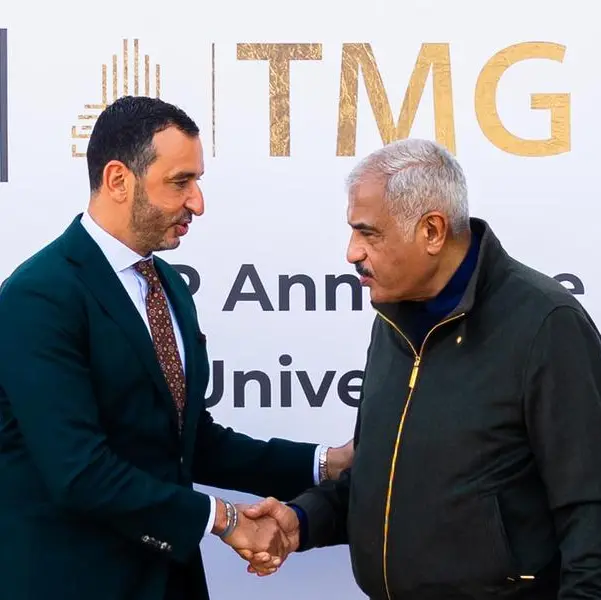PHOTO
- 12,344 families surveyed over 14-month period
- 3% allow their children to use smart phones and devices
- 9% restrict children's access to certain websites
- 5% use parental controls to monitor online activity and downloads
- Gaming websites and YouTube most frequented by children
Sharjah: The Child Safety Department (CSD), an affiliate of the Supreme Council for Family Affairs (SCFA) in Sharjah, has announced the findings of its research study, which was conducted to identify parents’ awareness of cyber safety and the safe use of the internet by children.
The study, based on a survey of 12,344 households in Sharjah has revealed that 72.3 percent of families allow their children to use smart devices. It has also revealed that 37.6 percent of parents do not review their children's activities on the internet, while 73.4 percent believe the websites accessed by their children are appropriate for their age group.
Ttled 'Community Awareness on Safe Use of the Internet and Social Media Sites', the study
was conducted by CSD under the directives and support of Her Highness Sheikha Jawaher bint Mohammed Al Qasimi, wife of His Highness the Ruler of Sharjah, and Chairperson of SCFA.
A representative sample was selected randomly amongst Emirati families and expatriate residents based on administrative suburban divisions across Sharjah city. Conducted over a 14-month period from 2018–19, the survey achieved a 92 percent response rate, which is both high and statistically relevant for accurate scientific analysis.
A scientific reference tool
Commenting on the importance of the study, Hanadi Saleh Al Yafei, Director of CSD, said: "The study translates the vision and directives of Her Highness Sheikha Jawaher bint Mohammed Al Qasimi, and is the first field research project undertaken in Sharjah to explore parental awareness about the threats children are exposed to when using the internet. The study has been developed as a scientific reference tool in alignment with the UAE’s and Sharjah's vision for development. The data obtained will help develop institutional strategies and plans that support children and families, help the growth and prosperity of society, and ensure protection of its youngest members who are most vulnerable to online crimes and internet addiction."
"The results will serve as a foundation for new projects that explore the advancement of technologies and subsequent changes in internet usage patterns of the younger generations," she added, discussing the potential benefits of the study.
Al Yafei lauded the efforts of all individuals and institutions that contributed to the success of the study and supported it through its various stages, most notably Sharjah's Department of Statistics and Community Development, Sharjah Police, Sharjah Broadcasting Authority, the University of Sharjah, Sharjah Airport International Free Zone, Hamriyah Free Zone Authority and Emirates Industrial City.
Detailed findings
Among those surveyed, 7,635 households reported having children, of which 72.3 percent reported permitting their children to use smart devices, 66 percent allowed internet access, while 23.5 percent offered internet access to children “only sometimes”. In contrast, 10.4 percent stated that they do not permit internet access for their children.
The study also found that 53.9 percent of respondents restricted their children's access to certain websites, while 62.39 percent of those surveyed said they review their children's activity on the internet, leaving 37.6 percent of parents who do not review their children's online activity.
The CSD survey also revealed that 73.4 percent of families surveyed believe that the websites accessed by their children are appropriate for their age group. Results also revealed behaviour changes observed in children resulting from their access to the internet – the most signifant being “intellectual development” while “academic achievement” was ranked as the least significant.
The study revealed that 55.5 percent of respondents used parental control programmes to monitor the websites their children accessed and the social media applications they download. While 13.7 percent indicated they do not use any such monitoring programmes, 7 percent of the respondents were not aware about the existence of such programmes. Although there is a higher percentage of families using internet monitoring programmes, 23.6 percent respondents did not answer the question, which must be taken into account when awareness-raising programmes are carried out for parents on how to use these applications.
Recommendations
The study recommends forging research partnerships across the network of institutions working in the field of child safety across the UAE to provide relevant data and information to safeguard children from threats in the virtual world. It also recommended the need to limit children's access to games on the internet using parental controls or by blocking access through telecommunications service providers.
It further proposes carrying out a study amongst school pupils between 7-18 years of age to hear their views on the reasons why hacking happens and to formulate recommendations to protect them while using the internet.
The study suggests partnering with nurseries and schools to develop programmes that raise awareness about e-safety and potential dangers online, increase general awareness about cyber safety, and use technology to enhance creativity and innovation.
The study was carried out under the general supervision of the Child Safety Department, and prepared and edited by a team of specialist researchers and editors who conducted the analysis of the results. The data was collected by a field team from the Sharjah Department of Statistics and Community Development.
-Ends-
About the Child Safety Department
The Child Safety Department is an affiliate of the Supreme Council for Family Affairs (SCFA) in Sharjah and was launched under the directives of Her Highness Sheikha Jawaher bint Mohammed Al Qasimi, Chairperson of the SCFA and wife of His Highness the Ruler of Sharjah. It works to promote awareness about children’s safety, protection, and social stability to ensure children are physically and psychologically healthy in a stable and secure family environment.
© Press Release 2021
Disclaimer: The contents of this press release was provided from an external third party provider. This website is not responsible for, and does not control, such external content. This content is provided on an “as is” and “as available” basis and has not been edited in any way. Neither this website nor our affiliates guarantee the accuracy of or endorse the views or opinions expressed in this press release.
The press release is provided for informational purposes only. The content does not provide tax, legal or investment advice or opinion regarding the suitability, value or profitability of any particular security, portfolio or investment strategy. Neither this website nor our affiliates shall be liable for any errors or inaccuracies in the content, or for any actions taken by you in reliance thereon. You expressly agree that your use of the information within this article is at your sole risk.
To the fullest extent permitted by applicable law, this website, its parent company, its subsidiaries, its affiliates and the respective shareholders, directors, officers, employees, agents, advertisers, content providers and licensors will not be liable (jointly or severally) to you for any direct, indirect, consequential, special, incidental, punitive or exemplary damages, including without limitation, lost profits, lost savings and lost revenues, whether in negligence, tort, contract or any other theory of liability, even if the parties have been advised of the possibility or could have foreseen any such damages.




















